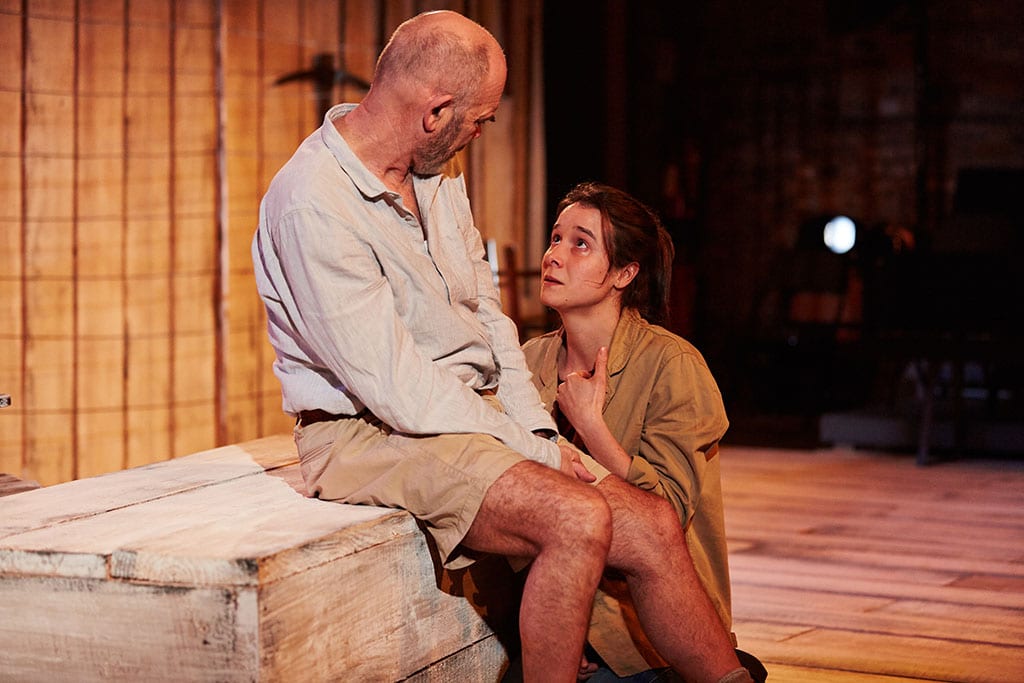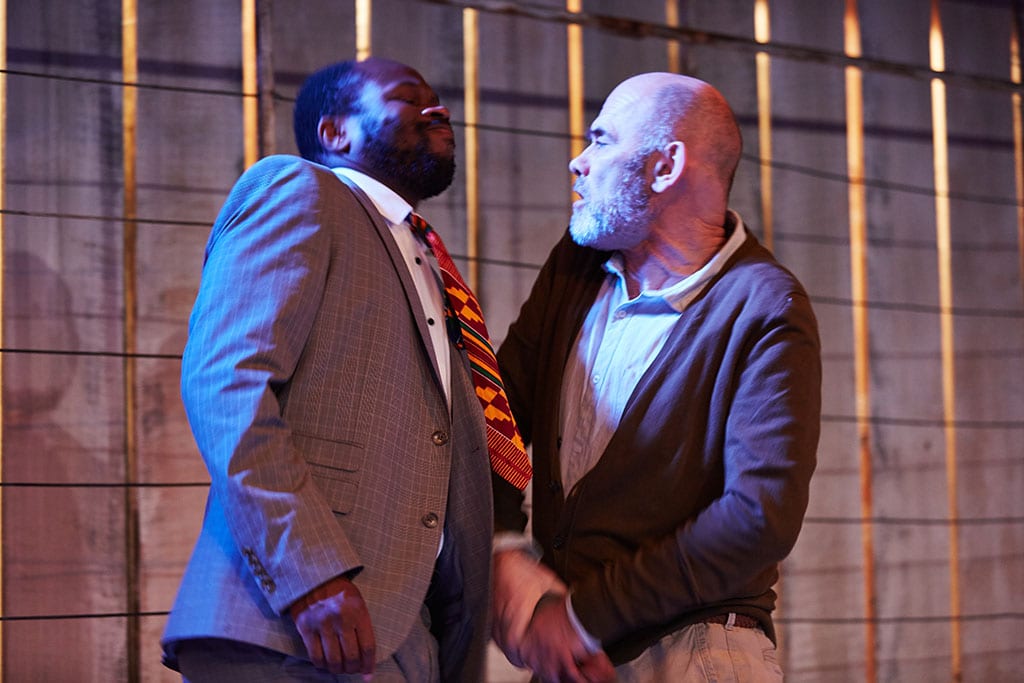Zimbabwe, 1998. Eighteen years after the country secured its independence from British colonial rule. The Mugabe government is enforcing land-reclamation policies, retrieving fertile farm lands from the white owners for the native Zimbabweans. After Independence is an interesting assessment of the conflict, struggle and ultimately progression, towards national sovereignty.
It is so hot. Swarthy, an uncomfortable heat and the cast of May Sumbwanyambe’s After Independence have beads of sweat on their foreheads. Charles, (Stefan Adegbola) a civil-servant pays a visit to a farm to deliver a notice of compulsory land-purchase. Guy (Peter McGuinness) is the stubborn farm owner, who has no intentions of selling. The conflict between the two characters represents the old and the new rule of Zimbabwe; Afrikaans white-minority rule and black majority-rule. The conflict between the two men raises the issue of what it is to be truly ‘African’. Can Guy and his daughter Chipo, whose family have worked on the farm ever since his grandfather moved on to the land, claim to be African in the same way Charles can?
This is a strong debut for May Sumbwanyambe, resident playwright at Papatango. The dialogue is fierce and issues of race, nationality and gender are explored through a series of microcosmic conflicts between the four characters. Sometimes the script lends itself towards being a little clunky and even didactic, but overall, the underlying tension is very well crafted. The farm is at threat from the violent gangs who roam the countryside. The farm is separated by a wire fence, an interesting motif representing attempts to maintain order in the face of chaos. Overall, Sumbwanyambe’s finest credit is that he never leans excessively towards either side of the argument, rather, he exposes and explores the implications of both sides.
George Turvey’s loose directing style gives the production fluidity. The cast thunder through the script, engaging in debates and confrontations. They all deliver passionate performances; Adegbola’s portrayal of the sometimes-cheeky and playful civil servant is particularly memorable.
The metal fence is one part of Max Dorey’s excellent set design. Similarly, After Independence is supported by Richard Hammarton’s expansive sound and music. It is promising to see the production team catering and accommodating Sumbwanyambe’s talent and flair as a playwright (this is his first play). Sumbwanyambe is in good hands at Papatango. As the tense negotiations between Charles and Guy reach an inevitable climax, we look towards Zimbabwe’s future with a sense of hope and optimism, albeit a shaky one.



